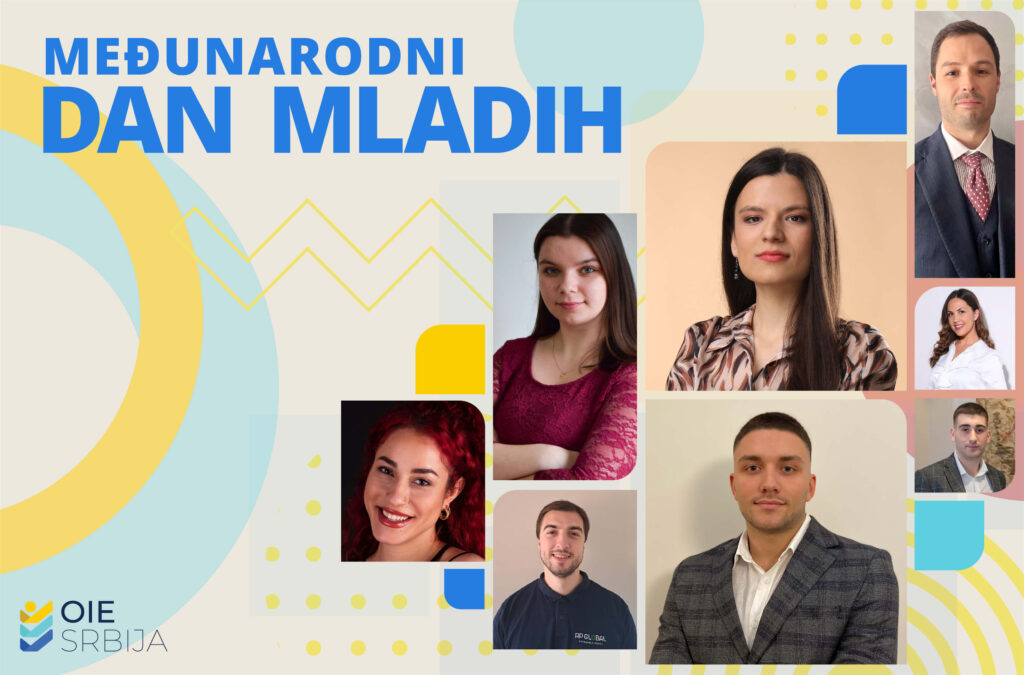Every second person on our planet is 30 years old or younger, and this percentage is expected to reach 57% by the end of 2030, according to United Nations forecasts. And yet, young people are not sufficiently represented in decision-making positions.
The UN says more than two-thirds of people across all age groups think more opportunities for young people to get involved in policy-making would improve political systems. Globally, only 2.6% of parliamentarians are under the age of 30, and less than 1% of those MPs are women.
To raise awareness of the plight of this age group, International Youth Day was established and has been celebrated every August 12 since 2000. This year’s theme “From Clicks to Progress: Digital Youth Pathways to Sustainable Development” highlights the key link between digitization and accelerating progress in achieving the Sustainable Development Goals, highlighting the essential contribution of young people in this transformative process.
RES Serbia joins the celebration of the holiday. We talked to several young people who directly or indirectly work in the RES area about their experiences at the workplace, plans and messages for new generations.
They revealed to us that it is difficult for young people to break through due to lack of experience, but that they have their own assets, such as energy, flexibility and a penchant for new technologies. Renewable energy sources, as they say, offer an excellent perspective, and they tell young people in all fields that knowledge really is the greatest treasure.
These are their stories.
Tina Petrić (25), BD2P: We need a “hawk’s eye” to protect the environment
Concern about air pollution in Belgrade, but also in her hometown Valjevo, made Tina Petrić, an intern at the BD2P law office, interested in the RES sector. He wisely observes that the problems concerning the increasing threat to the environment started long before we could see them. And when those problems became visible to the naked eye, it became urgent to answer them, says Tina in an interview for the RES Serbia portal.
– While I’m saying this, I’m primarily thinking about the air condition in the capital, but also in the surrounding towns, such as my hometown of Valjevo, as well as nearby Užice. So my interest in renewable energy sources started out of “necessity” – let’s call it that, but actually out of concern for my hometown, for our common capital, but also for all the cities in Serbia that face a similar or the same problem – reveals Tina.
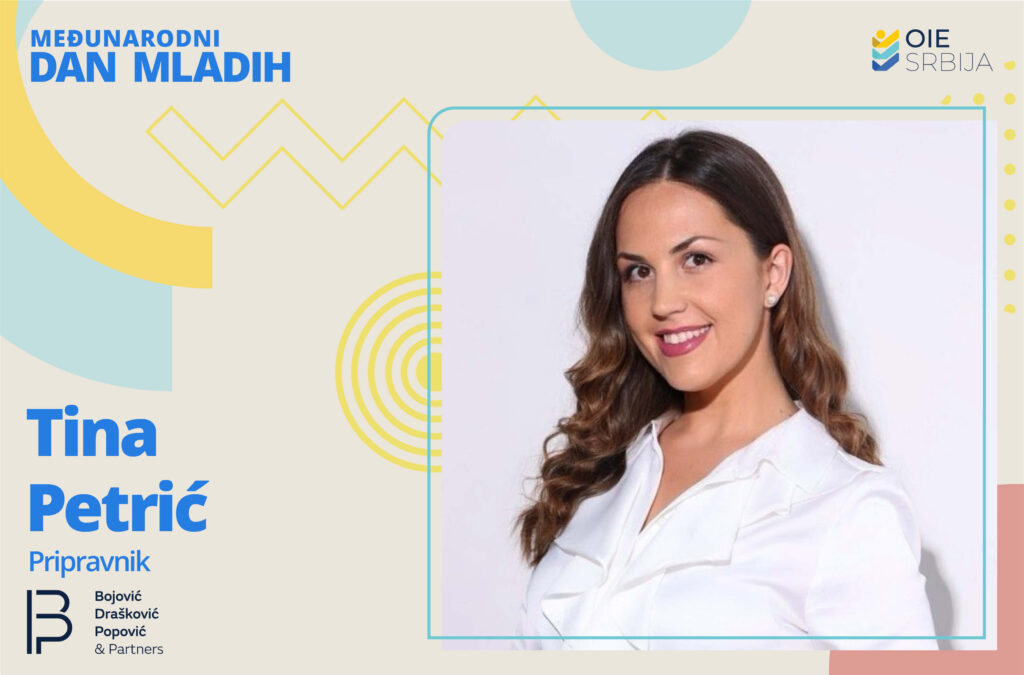
It was this concern that led her to renewable energy sources and the need for deeper study and dealing with them, given that renewable energy sources are imposed as a solution or at least a part of the solution to almost every problem concerning the environment.
– Working in this area, first, gave me the opportunity to get to know a whole new area of law that is still developing in Serbia – I would say now at a satisfactory pace. Environmental protection calls us to constant vigilance, awareness and sharpening of the “hawk’s eye” to recognize potential dangers that would threaten our environment – notes Tina.
As she says, the position of young people in the business world in Belgrade could be assessed as satisfactory, but only because he compares it with smaller cities where, she does not hide, the position of young people is far from satisfactory.
– Here, of course, we are talking about young people who, despite all the challenges, decided to stay in their cities, for which they should really be recognized. The problems of young people in the business environment of smaller cities begin with insufficiently transparent advertising of job offers, and end with the impossibility of finding a suitable position (meaning in the profession) for young, educated people who want to build their careers in smaller cities, and they invest the acquired knowledge and experience in the development of those places – says our interlocutor.
On the other hand, when it comes to Belgrade, Tina believes that, generally speaking, there are no major problems with finding a job, at least in the private sector. This is evidenced by the increasing number of people who come to live in Belgrade, which, as he notes, leads us to a new problem, which is the overpopulation of the capital, while during this time smaller cities remain empty and without young people.
– There are many examples, and almost every day we meet people who, after completing their studies in Belgrade or any other university city, would be happy to return to their cities throughout Serbia, but the reason why they cannot do this is always the same – it is not possible to find a suitable job which would be accompanied by adequate earnings.
Our interlocutor believes that this issue is not given enough importance. As she says, one gets the impression that as long as “wolves are fed and sheep are numerous” in Belgrade, nobody cares too much about what happens to smaller cities.
– This is precisely where a large space opens up for action at the state level, but first of all for recognizing this problem and allocating suitable funds to encourage young people to build their careers in the places they come from and contribute their excellence to smaller communities, and thus to the wider plan and decentralization of Serbia – emphasizes Tina Petrić.
The young intern evaluates her personal experience and the business world in which she currently finds herself as very positive. As she says, in the BD2P law office she works with talented people, who know how to recognize when among young colleagues there is someone with the potential and desire to contribute to the entire office, and the wider community, through self-improvement.
– You will always get wind in your wings for new ideas, which I personally consider very important, especially in the current business environment where the tendency is to clip the wings of young people at the very beginning, to fit into already existing and established patterns of business. It is also a fact that the ambition of young people has died down, but I personally believe that it is still there and that with adequate support from older colleagues and society, it could wake up again and do great things, both in their business environments and beyond – believes Tina.
The question “where does she see herself in 10 years” reminds her how important it is where and how we see ourselves, as well as how important it is not to let anything cloud our projection of our goals and aspirations. She says that we can always dream big things and they often keep us fighting all the challenges that life puts before us, and if we learned over time to believe in what we dream – there would be no limits to our righteous deeds.
– Considering that ten years is, on the one hand, a long period, and on the other, time that flies by very quickly, I see myself as someone who is in the arms of a large family, who has managed to achieve everything he dreamed of in his career, someone who has completed or at least is successfully completing his doctoral studies, who has acquired enough knowledge and experience to be able to invest in works that will have a greater social impact and that will always help those and where help is most needed, because everything we get, we get in order to multiplied and gave to others again – says Tina.
She would tell young people, but also all people, to never lose faith, no matter what images are in front of their eyes daily.
– To build their little worlds on the sure foundations of knowledge, honesty, hard work and faith in the right path. Many such small worlds will one day become one new better world. I believe!
And I would end with a lesson that I read in one of the books that I received as an elementary school student for excellent success and exemplary governance: “Little knowledge is gained by studying, and great knowledge is gained by faith and honesty.”
Lazar Đukanović (26), RP Global: More and more young people are dropping out of college
Considering that he comes from a small town on the Drina, project assistant at RP Global, Lazar Đukanović, has had contact with HPP Bajina Bašta on Lake Perućac since he was a child. When enrolling in high school, he still decided to major in computer electrical engineering at ETŠ “Nikola Tesla” in Belgrade. The plan was to return to his hometown after completing the course and look for a job in one of the computing positions at HPP Bajina Bašta.
– However, fate wanted it that way – due to good success and encouragement from close family members, I decided to enroll in ETF. After the first year, my love for energy prevailed and instead of the RTI major, I went to the energy major. One of the reasons was that in that period, in addition to my desire, the story about green energy sources came to life, which I could learn more about at the energy department. That’s where I saw how complex and demanding the energy sector is – reveals Lazar for our portal.
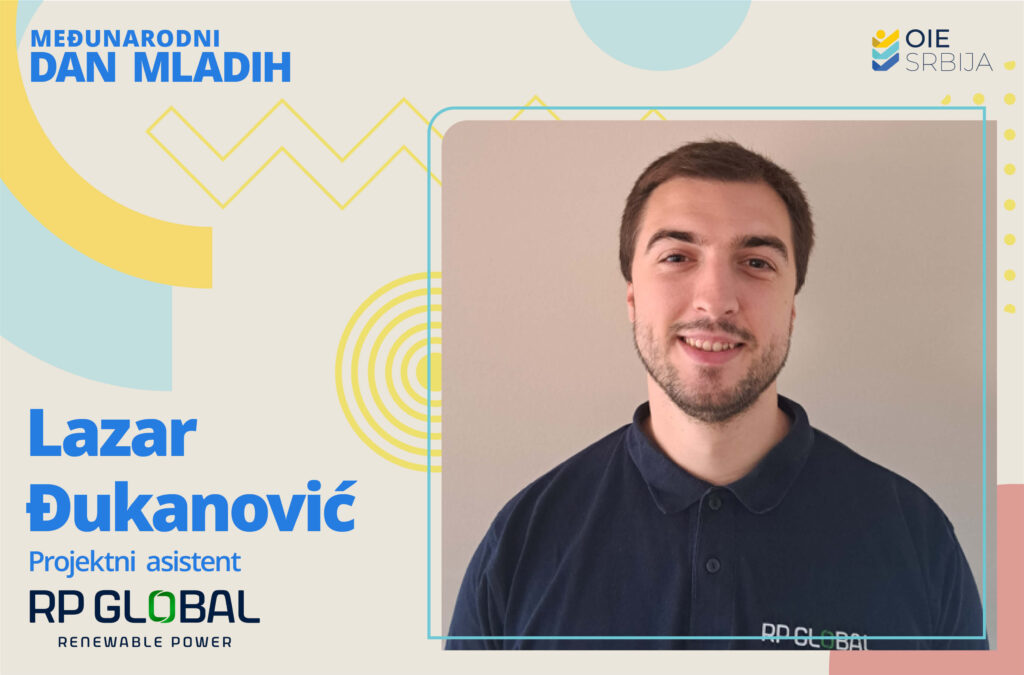
At the master’s degree, he decided on the sub-field of RES in the area of power systems and further strengthened his knowledge of wind power plants and solar power plants, and eventually found his first job in the company RP Global as a project assistant.
– Work in this field has given me a lot of experience in working with concrete projects and problems that project managers face every day in order for the project to go from idea to realization. I realized that this process is much more complicated than what I imagined as a student and that bureaucracy is what is holding back the rapid development of this field – notes Lazar.
As he says, the position of young people depends on the activity they are engaged in. He notes that more and more young people are dropping out of college, because they have realized that in today’s world, social networks can bring them much better income, while they have no responsibility and no pressure to complete something properly.
– Also, according to the stories of some of my faculty colleagues, employers exploit younger workers, and they are not paid enough. The position of young people could be improved, for example, by better communication, working conditions and a more modern approach to the problem. As for the respect of older colleagues, in my case I can say that it is mutual. Admittedly, in other companies there is a tendency for older colleagues to stick to old protocols and do not want to modernize – says Lazar.
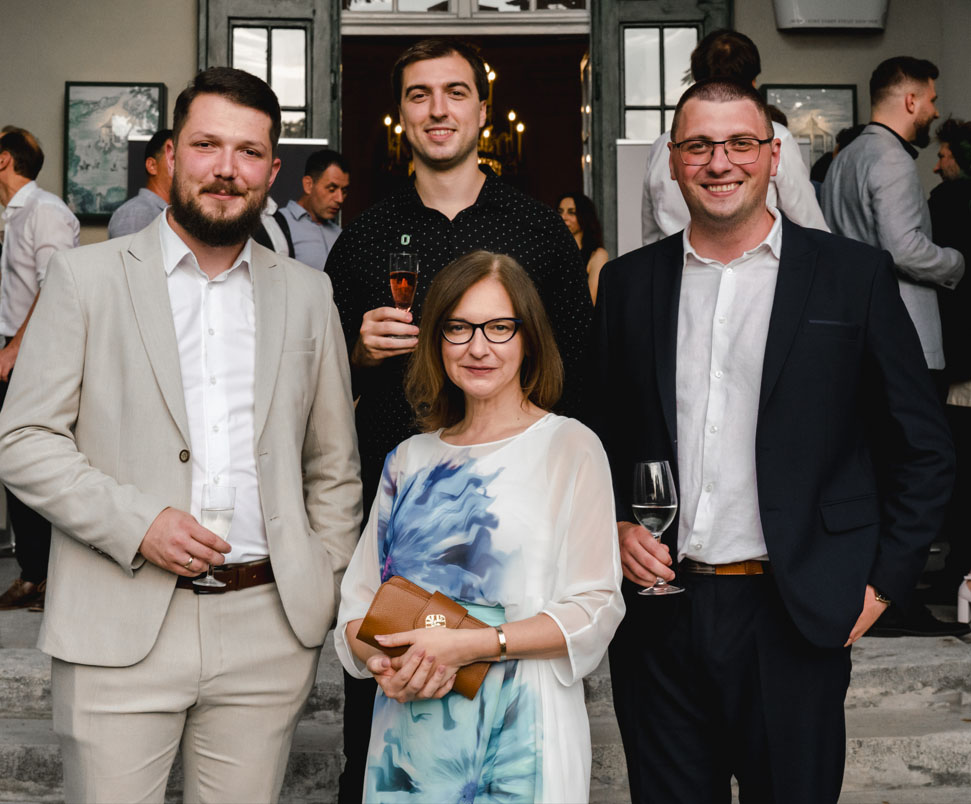
He sees himself in renewable sources even in 10 years, although, as he says, the energy sector offers a wide range of opportunities, and there is more and more work due to the rapid development of this area. He would tell young people to study and do what they are most interested in or find interesting, and not what others tell them.
– Admittedly, I’m not very good at giving advice, but in my life, I’ve often been guided by the saying “measure three times, cut once”, so I would like to conclude this interview with that – says Lazar Đukanović.
Irena Cvetić (28), Siemens: Advice from older colleagues is valuable
A sales engineer at Siemens, Irena Cvetić, became interested in energy as a field of electrical engineering at the Faculty of Electrical Engineering, University of Belgrade, which she graduated from.
– Before that, like many of my colleagues, I didn’t have much experience, so when the moment came to choose a major, I thought – what is the most practical and without which nothing can function – electricity. And that prevailed – she says for our portal.
Later, through work and her first job, she concluded that she would repeat the choice and that she was by no means wrong.
– Energy is a field I like – she says.
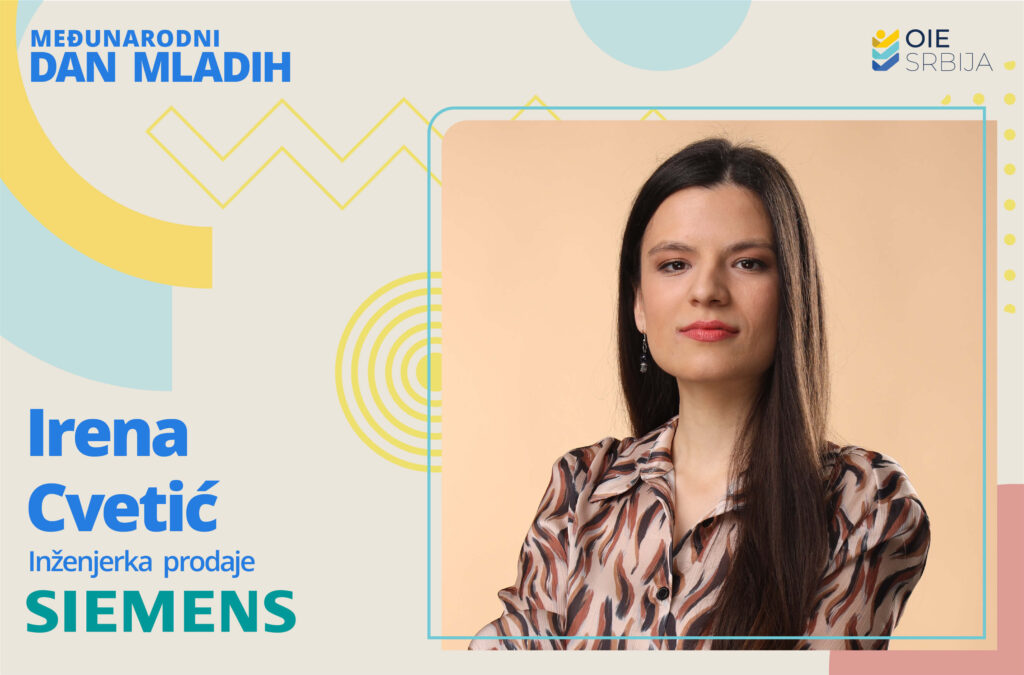
Our interlocutor also had her first encounter with OIE at university, but she got the real picture through her work at Siemens.
– My focus was on solar power plants, and although the portfolio of Siemens doo Belgrade does not include PV panels themselves, we certainly play a significant role in providing adequate solutions for connecting these power plants to the distribution network. The expansion of solar power plants in the past few years has contributed to developing my knowledge through technically diverse requirements, but to some extent making a pioneering step in the direction of “green” solutions that are becoming the standard today – reveals Irena.
Irena believes that the position of young people in the business world depends on their profession, current goals and aspirations, as well as personal characteristics. He notes that people who graduate from conventional electro-mechanical faculties have never had more choices and opportunities, which was also contributed to by the development of RES.
– There is always room for improvement, such as providing adequate mentors and training programs. The system, especially the school system, has changed a lot, and I think that for the formation of a quality staff, the first “shaping” you get as soon as you leave the university is extremely important – says Irena.
As she says, she is lucky to have always been in a team with very high-quality senior colleagues and managers.
– Given that “the world rests on the young” – I could always freely communicate any new idea, agreement or disagreement with proposals and actions. I think that as a society we have “outgrown” such an authoritative system of functioning and that the emphasis is placed on us young people, of course where possible. However, we should not forget that in energy, as well as in medicine, experience and expertise are gained over the years, and the advice of older colleagues is very valuable – the young sales engineer points out.
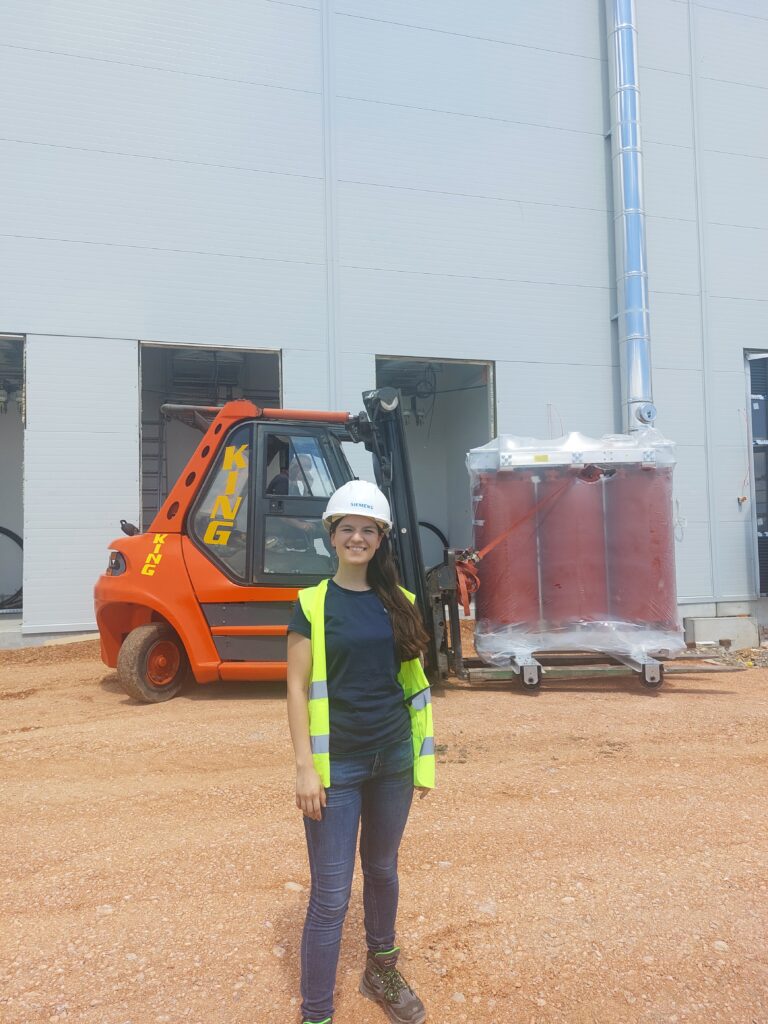
When asked where she sees herself in 10 years, she could never answer because she is not the type who is able to think that far ahead. But she would definitely like to be satisfied with her job then, as now, and doing what she loves.
– Of course, a healthy business-private balance additionally affects overall satisfaction, so you should make time for family and friends – she adds.
She advises young people to make the most of their “school years” and to focus on learning and education. Knowledge, she says, is truly the greatest treasure, and continuous professional development is welcome.
– During the period of attending college, let them use the opportunity to explore what they are interested in and what they would like to do as well as set their goals. Perhaps at first the path may seem thorny, but with perseverance and a strong desire – every obstacle can be overcome and reaching one’s potential becomes very certain. Effort and success should always be adequately valued and recognized – concludes Irena.
Marko Vukalović (29), Masdar Taaleri Generation: It is difficult for young people to break through due to lack of experience
Marko Vukalović, an analyst at the company Masdar Taaleri Generation, became interested in the RES sector during his studies when he realized the importance of green energy, as well as the impact of energy on the environment.
– Working in this field gave me, first, the opportunity to learn a lot, improve existing skills, but also to collaborate with colleagues who cover different fields: finance, law, engineering, ecology, just to name a few – he says for our portal.
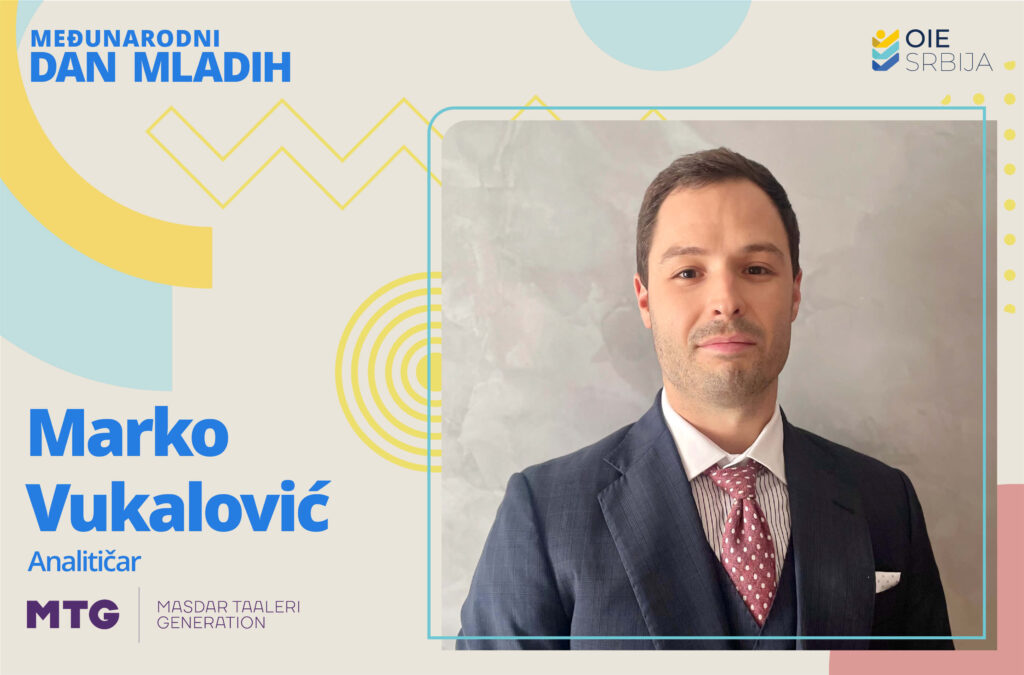
Marko points out that the position of young people in the business world varies depending on the industry and country, but in general he believes that there is room for improvement. As he says, it is difficult for young people to break through due to their lack of experience, but they have their own assets, such as energy, flexibility and a penchant for new technologies.
– To improve the position of young people, it is necessary for companies to invest in internships and training. Competent and senior colleagues generally respect my suggestions, since I work in a company where open communication and team spirit are priorities – notes Vukalović.
He would tell the young generations to believe in themselves, set high goals and be persistent in achieving them.
– In 10 years, I would like to see myself as an expert in the RES sector with extensive experience and numerous successful projects behind me. I hope that I myself will have the opportunity to include some young people in my team, interested in a career in this field – concludes Marko Vukalović.
Milica Pavlović (25), WPP: Don’t be afraid to step into the unknown
Milica Pavlović, an office assistant from WPP, became interested in the RES sector a few years ago, when she participated in a design project on renewable energy sources at the university. Although her profession is design and creation of visual content for the brand, then she had to expand her knowledge a little and research the RES sector. After the first meeting, she became very interested in renewable energy sources and their benefits.
– Although I have only been working in this field for a short time, less than a year, working in the RES sector has inspired me to learn even more about this field and meet wonderful people who are working on useful projects for our future. Also, my colleagues at the company Wind Park Plandište made me even more interested in the RES sector with their stories and ideas – said the interlocutor of RES Serbia.

Milica believes that the position of young people in the business world is good, especially if she compares the period when the parents of her generation were employed for the first time or when her colleagues from WPP entered employment for the first time.
– Although I came to the Wind Park Plandište company with very little knowledge about the RES sector, at no point did I feel uncomfortable or insufficiently accepted. Colleagues were always there to teach me new things and to help me better understand things that I had never encountered before. Their support and wind at my back mean a lot to me because I am still a beginner in this industry – our interlocutor is modest.
Milica does not hide the fact that she has no concrete plans. She says that she would like to try herself in various fields and see what she likes best. However, she is sure of one thing – whatever she does, she will always incorporate knowledge about renewable energy sources into her work.
– I would tell the younger generations that with will, work and effort, nothing is impossible, and that they should not be afraid to step into the unknown and expand their horizons – concludes Milica Pavlović.
RES Serbia Team: The RES sector is the future
The RES Serbia team has as many as three representatives of the younger generation. Business development officer, Lazar Ljubanović (25) says that one of the first things he noticed when he started working in the renewable energy sector are the great and professional colleagues he is surrounded by and from whom, he says, he can really learn a lot.
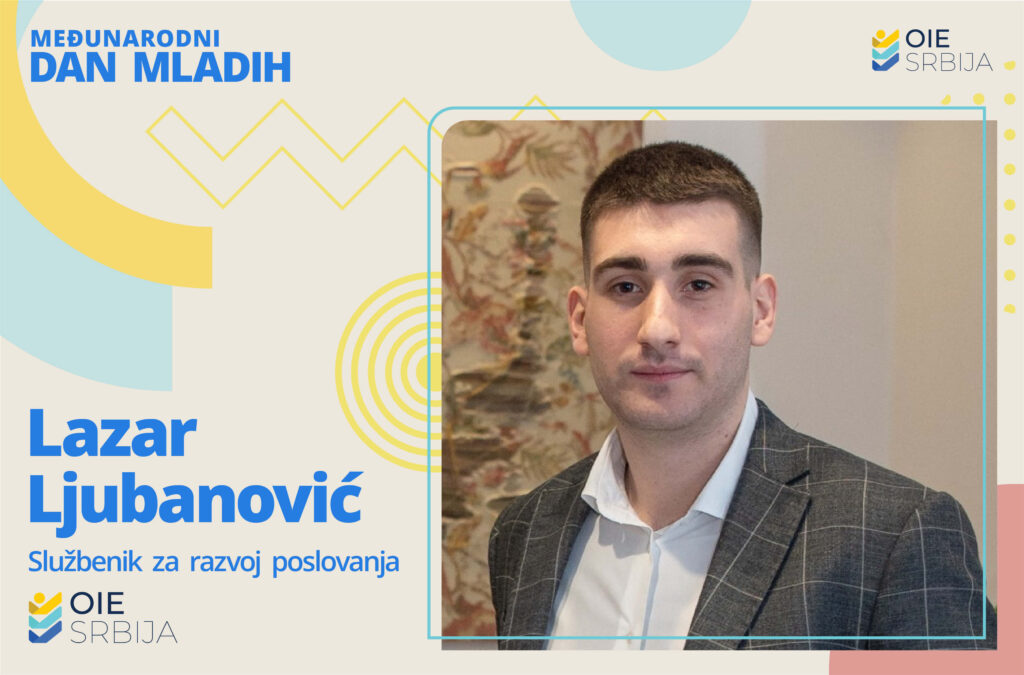
– I think that the sector of renewable energy sources is the future, and that it is an ideal opportunity for young people to educate themselves in time and gain experience in this field and take advantage of the many opportunities that this sector provides them – says Lazar.
Milica Stanković (22), assistant manager of RES Serbia, has been studying the nature around her all her life and looking for ways to improve her environment. As she says, she often looked at various landscapes of windmills, she was fascinated by the ways in which we can get clean energy, and while she was sitting and listening to possible wind farm projects in Banat, she dreamed that one day that idea would come to life in our country.
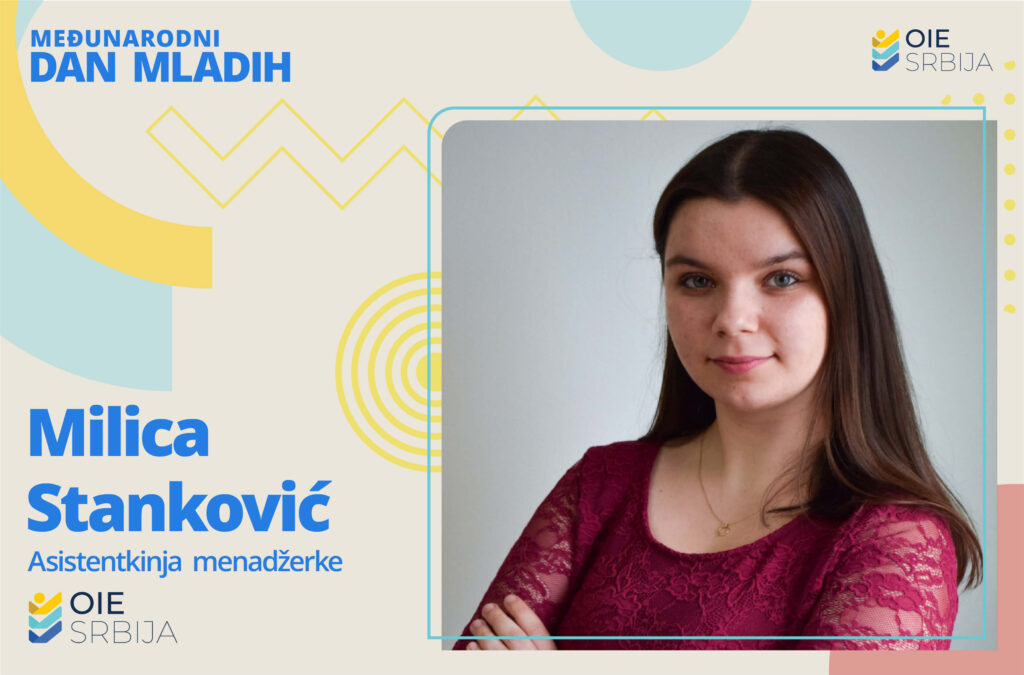
– The paths were a little different for me, during my education I decided to enroll in political science, of which I am still a student. My love for ecology and energy has not stopped, and that’s why I decided to combine all the things I love – points out Milica.
Business analytics officer Jovan Ćosović (25) decided to start a career in the renewable energy sector because he has always been interested in how clean energy is produced. He was particularly interested in solar panels and the way they convert solar energy into electricity.
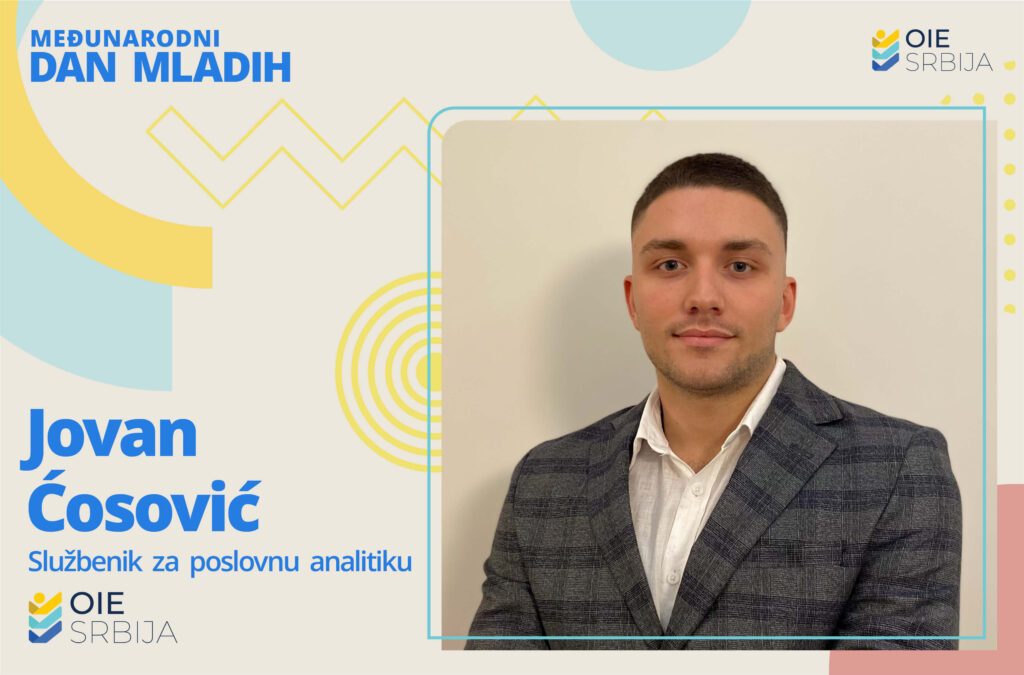
– Through work in this sector, I am surrounded by great and expert colleagues from whom I constantly learn and improve myself further. The renewable energy sector has an extremely bright future and offers countless opportunities for young people to learn and gain valuable experience. One of the aspects that I am particularly interested in are prosumers (customer-producers), because they allow individuals to be not only consumers, but also producers of energy. That is why I participated in a large analysis of prosumers in Serbia, which was conducted by our Association – concludes Jovan.


